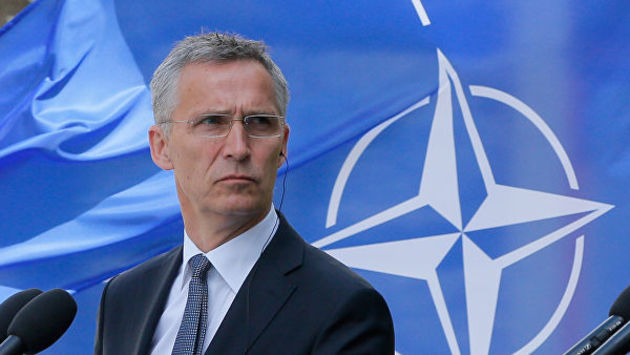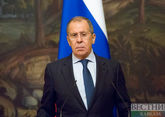Recently, Russia and NATO tried their strength against each other in the Black Sea. NATO exercises near the Russian coast made a lot of noise. In addition to this, insides about the sending of British and Swedish troops to Poland and Ukraine to repel the "Russian invasion" were leaked to the mass-media.The West is still convinced that Vladimir Putin is planning an operation against Ukraine.The leaders of the military alliance, no longer being shy, declare that Russia cannot have any interests in its geographical environment and it would be better if it returned to the borders of Ancient Russia.
The day before, Russian President Vladimir Putin offered to negotiate legal guarantees against the expansion of NATO to the east, at the ceremony of the letters of credence presentation. According to Putin, Russia intends to seek "reliable and long-term security guarantees" and in negotiations with Washington and its allies will "insist on the elaboration of specific agreements that will exclude any NATO advance to the east." The President of Russia specifically points to legal guarantees, because verbal promises to Mikhail Gorbachev during the unification of Germany with the consent of the USSR showed their ineffectiveness.
Responding to the proposals of the Russian leader, NATO Secretary General Jens Stoltenberg linked it to the spheres of influence of the Russian Federation. "The very formulation of the question reflects the thesis which should cause our suspicion and which is unacceptable. It is the thesis that Russia has a sphere of interests," he said during a briefing in Riga following the meetings of NATO foreign ministers. The Alliance Secretary General interprets Putin's words as Moscow's desire to control the countries of the post-Soviet space, but in such a world, Stoltenberg said, NATO does not want to return, and therefore will strengthen its ties with Ukraine and Georgia, seeking membership in the bloc.
Earlier, US Secretary of State Antony Blinken, who also attended a meeting of NATO foreign ministers in Rome, said that Russia has "significant aggressive plans" against Ukraine.
Despite harsh rhetoric, threats and muscle flexing, NATO continues to maintain the threads of dialogue with the hands of the United States. On December 2-3, Blinken is holding a bilateral meeting with his Russian counterpart Sergei Lavrov in Stockholm. Negotiations are taking place on the sidelines of a meeting of the OSCE Council of Foreign Ministers (CFM).
Edvard Chesnokov, deputy editor of the international policy department of Komsomolskaya Pravda, notes that keeping promises is very important for the Russian leadership. That is why the Kremlin reminds of "the promises broken by the West."
"We have given guarantees to Syrian President Bashar Al-Assad - and we have fulfilled these guarantees, the SAR has been saved from terrorism, Assad is still at the helm, in return recognizing Crimea and deploying a Russian military base in the strategic region. This attitude to personal obligations is part of our cultural code, which goes back to the ancient Russian idea of the Word as the source of divine grace. Even the names of the letters of the Old Russian alphabet - and the native alphabet is what a person learns in the first place - formed a meaningful phrase: "rtsy is a firm word," he said in an interview with Vestnik Kavkaza.
Western civilization has a different attitude towards promises and the word. “Any noun in the English language has dozens of subtle nuances, distinguishable only by the person who gets semantic shades which in the future can be interpreted as you like, depending on the conjuncture. They say: "In our conversation with Gorbachev,we just meant that NATO expansion to the east would not be abrupt, and in general - show the paper signed and apostilled. No? Goodbye," Chesnokov said.
For this reason, according to the expert, the word spoken by Western politicians does not contain any responsibility. “Let's take the same Stoltenberg. 10 years ago, when Breivik committed a monstrous act of terrorism, Stoltenberg was Prime Minister of Norway and said something like this: "No matter how much evil this aggressor brings down on us, we will answer him with love." Indeed, Breivik was not even given a life sentence,” he says.
Chesnokov draws attention to the fact that NATO and the United States are pursuing an ambiguous course towards Russia. On the one hand, the British Foreign Minister is riding a tank near the Russian border, but at the same time, Blinken is meeting with Lavrov, and Western courts are rejecting Khodorkovsky's $ 50 billion lawsuit. “That is, negotiations between the Moscow River and the Atlantic on a “new world order”, a sort of Yalta-2, are continuing,” the expert concluded.










